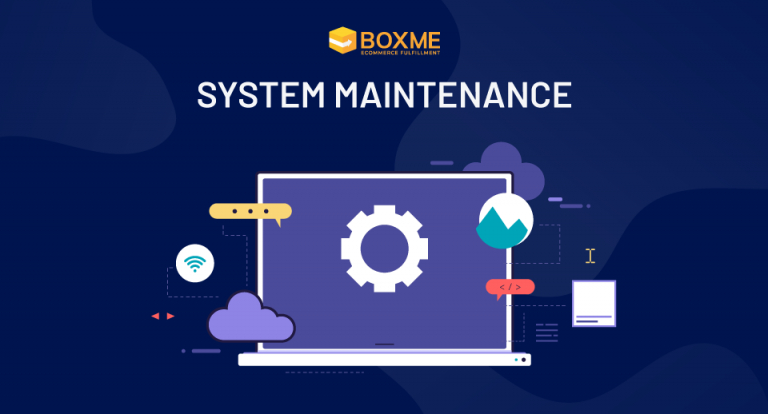Expand business to a new region, business owners might pay much attention to other aspects such as the market overview, local trends and logistics providers for the business and might forget to understand the region’s legal requirements.
> Read more: Must-have checklists to start E-commerce in Thailand.
> Read more: Ecommerce business in Thailand: Critical success factors to notice 2021
>> Read more: Top e-commerce trends in Thailand post Covid-19 ( 2021 edition)
Do not forget that, in order to establish e-commerce business in any part of the country, one needs to encompass varied rules and regulations followed by a particular territory.
So what are the most essential Thailand’s legal requirements to notice? In this article, Boxme will help you to have a better grasp of it.
7 Thailand’s legal requirements for opening new business
As the digital economy is thriving in Thailand, the country provides a lifetime opportunity to expand online and offline business in Thailand. However, there are certain regulations and legal requirements the government set which business owners should carefully review and apply when expanding business in Thailand. This is true particularly with respect to these aspects:
Corporate structure
Registration – The first and foremost step is to get your company registered as a business via electronic medium.
License – Under the foreign business license act, it’s necessary for the foreign majority shareholders to get authorized, terms, and conditions applied.
Board of Investment (BOI): promotional techniques, if the marketplace is BOI promoted, products and services would be provided by several third parties. By processing such transactions, the marketplace operator generates revenue from transactions, neither procure tax holidays nor merit-based incentives but authorizes 100% land possession to carry on the promoted activities.
Electronic License
An e-commerce business license is compulsory for any business. Once the business is opened, the owner has to apply for a license within 30 days.
If the website or social media page of the business has already listed payment process and pricing details. These websites can be considered as e-commerce web.
>> Read more: Popular Selling Channel in Thailand
>> Read more: The most popular E-commerce platforms in Thailand
For the e-commerce website, e-payment and cashless payment on the website must be undertaken by an authorized third party or organizations that are compliant with specific security requirements. Once in a while, the central bank of Thailand also known as Bank of Thailand will be responsible for enforcing increasingly tighter controls on e-commerce providers, to ensure that they are compliant.
OCPB registration
It is compulsory for all e-commerce businesses to register with the Office of the Consumer Protection Board (OCPB) as a direct sale business. This to ensure the consumer’s rights are protected under Thailand’s authorized organization. All e-transactions being conducted in the e-commerce website are being carefully examined annually to prevent any internet fraud, scam and privacy leakage.
Under the new legal requirements of e-payment law, each financial institution will be required to report transactions of customer accounts that receive either more than 3,000 money transfers a year or at least 400 money transfers with a total value of at least THB 2 million a year to Thailand’s Revenue Department.
Payment systems
PromptPat supports electronic payment via mobile number or Thai Identification card number.
Standardized QR codes allow distinct modes of payment which constitute a visa, Mastercard, or UnionPay.
Alipay, Apple Pay, and Cryptocurrencies are widely used as one of the payment systems.
>> Read more: E-commerce logistics in Thailand: Shipping and Payment
>> Read more: Must-have checklists to start E-commerce in Thailand.
Legal Acquiescence
Several commercial and civil agreements and codes are to be conceded under
- Electrical transaction act(ETA)
- Consumer Protection Act
- The electronic transactions development agency(ETDA)
- Computer crime act
- National Broadcasting and Telecommunications Commission
These are needed to be followed while expanding business digitally in Thailand.
Legal requirements: Tax
E-commerce business is not limited within the region but all over the world. Customers can be found in any place on the globe. Payment systems are typically located abroad. Tax advantages and lower regulated jurisdictions can be found outside of Thailand as well. Therefore, for a cross-border e-commerce business, the biggest competitive advantage is the attractive benefits.
The best solution is An affiliated company in an offshore jurisdiction, which can help to create a tax-efficient and most profitable business solution.
VAT
Under the Thai’s legal requirements of tax system, the export of goods and services has nearly a zero percent VAT rate.
Legal requirements like custom clearance reports make it hard to take the benefit of the 0% tax rate.
Visa/Work permit:
A foreigner working online while being physically in Thailand needs a work permit. The standard rules and regulations apply without privileges for online workers who are focused on non-Thai customers or the foreign headquarters as the only client. “Just doing things discreetly” is pragmatic, but is not – and has never been – a legal solution.
Even foreigners who run their businesses physically in Thailand need work authorization.
Standardized rules and regulations are mainly focused on non-Thai customers or foreign headquarters as their clients.
Thailand is convenient for e-commerce businesses. However, several legal requirements are mandatory to be taken care of. Also, Bangkok law firm provides comprehensive consultants and support to avoid misinterpreting any legal facets.
More readings?
>> Read more: Thailand: One of the most potential e-commerce countries in SEA
>> Read more: Ecommerce business in Thailand: Critical success factors to notice 2021
>> Read more: Top e-commerce trends in Thailand post Covid-19 ( 2021 edition)
>> Read more: Seize the E-commerce opportunity in Thailand
About Boxme: Boxme is the premier E-commerce fulfillment network in Southeast Asia, enabling world-wide merchants to sell online into this region without needing to establish a local presence. We deliver our services by aggregating and operating a one-stop value chain of logistic professions including: International shipping, customs clearance, warehousing, connection to local marketplaces, pick and pack, last-mile delivery, local payment collection and oversea remittance.











